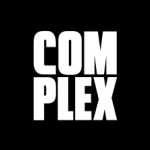
In anticipation of the 2010 VH1 Hip Hop Honors: The Dirty South, which airs on June 7, Complex and Miss Info have teamed with the network to celebrate this year's honorees with exclusive coverage.
On the ode to Miami's Dade County, "Born N Raised," Pitbull refers to Luke as "The King." Flipping through our list of "The 25 Greatest Luke Songs Of All Time," it's easy to see how the Miami legend attained the crown, with a legacy that includes fronting crossover bass heroes 2 Live Crew, starting one of the first successful independent hip-hop labels, and a reputation as a hypeman/personality/artist who inspired an entire generation of rappers and entrepreneurs. Complex sat down with the Bawse of M.I. Yayo, Rick Ross, who's preparing to release his fourth album, Teflon Don, in July, to get his thoughts on Uncle Luke. Read on for his memories, including his reaction to the first time he heard "We Want Some Pussy" as a teenager...
Interview by Brendan Frederick
Complex: Do your remember the first time you heard Luke's music?
Rick Ross: When I was younger, and they first hit the scene, it was all about Ghetto Style DJs. DJs in Miami was always big, so it used to be the battle of the DJs. R.I.P DJ Al. Used to be Sugarhill DJs, Ghetto Style DJs, Vicious Funk DJs, and Big Daddy Knok. So Ghetto Style DJs had the most speakers, and that's what Luke was, a DJ. So when everybody hears Luke making all that noise and getting crunk, we know him from being a DJ. So that's why when he became an artist and started tryin' to rap when he wasn't a rapper, it was a natural progression. He always made the parties live, and that's what you wanted to hear, so when I heard [Ross begins to sing] " Heyyyy, we want some pussy," although I was in elementary school, I didn't see it as obscene or vulgar. I was just looking at the fact that there was a dude from my 'hood who was living his dreams. He manufactured his own music, he distributed his own music, and I believe Luke was one of the first pioneers of being independent and an executive, and that's big in the game.
Complex: The influence of bass music on today's hip-hop seems to get overlooked a lot. Why do you think that is?
Rick Ross: There's a time when everyone evolves and moves on, and I think that's what it was. That was one of the greatest eras in Miami. He was selling maybe the most records from a single artist or act in Miami and I believe Luke Records may still hold that. So, to see Banned in USA going triple platinum...
Complex: You have any songs that are your favorites?
Rick Ross: Of course! He still inspires my music in some shape, form, or fashion—you have to understand, when I get up on the mic and speak my mind any time I feel like it, Luke Skywalker showed me how to do that. He didn't give a fuck and that's what it was. Records like "Move Somethin'" is timeless. You could YouTube that video right now and God bless the dead, but some of the biggest drug dealers that came from Miami made sure they were there. The Convertible Berts and the Big Ikes, the people you hear about in these songs, they was there on 15th Ave. when they had they jeans all the way down to their knees, with their arms crossed and reppin' the University of Miami. That pride was always instilled in Miami and it comes from Luke. When he was maybe the biggest Southern artist in the game, he was representing the Hurricanes.
Complex: You heard that he's being honored at the VH1 Hip-Hop Honors this year?
Rick Ross: Most definitely. I hope they honor him as an artist and an executive, being the face behind JT Money, Poison Clan, H-Town, even Professor Griff was signed there once, MC Shy D, Trick Daddy, Pitbull. I mean the list goes on and on. He was so instrumental in so many careers, and I tip my hat to him.

